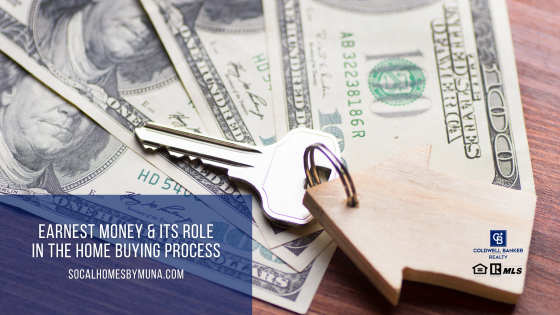So, you decided to buy a Southern California home this year. You scrimped and saved in order to come up with a good down payment. After looking at several homes, you found one that you absolutely love and plan on making an offer. Once the seller accepts your offer, you enter escrow. What’s next after that? Your earnest money deposit. What is that and how does it factor into the home-buying process?
Earnest Money and the Home Buyer
What is It?
In a real estate transaction, a buyer will be asked to put down an earnest money deposit when entering escrow. Also known as a “good faith deposit”, this shows the seller just how serious you are about buying the home in question. This good faith deposit exists independently from your down payment. If you back out of the deal due to reasons outside of any contingencies in place, the seller keeps this money.
How Much is Enough?
But how much money should you expect to put down as an earnest money deposit? According to the Credit Union of Southern California, 1% to 3% of the sale price of the home is typical. For a $450,000 home, that means anywhere from $4500 to $13,500. This money gets deposited into an escrow account held by a third party for safekeeping throughout the escrow process.
What Happens to This Money After Closing?
Upon a successful close, the earnest money deposit usually ends up as part of the buyer’s down payment. If the buyer decides not to purchase the property, they may get their earnest money back as long as they have a contingency in place that covers the reason why they backed out. Some typical contingencies include a home sale contingency, a home inspection contingency, an appraisal contingency, and a financing contingency. But if a contingency is not in place, that money automatically defaults to the seller.
Before you decide on how much money you want to provide in good faith with your offer, make sure you really want the home. Sometimes, you may offer even less than 1% to show interest to a seller. Talk to your real estate agent before determining how much money is enough and to make sure you include contingencies that protect you and your money in case the sale falls through.
Muna Dionne, your Inland Empire specialist with Coldwell Banker Realty


 Facebook
Facebook
 X
X
 Pinterest
Pinterest
 Copy Link
Copy Link
